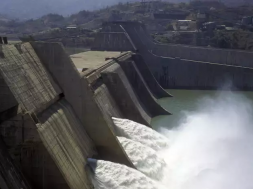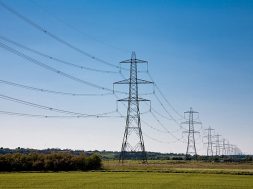
Prayagraj Power Generation Company Inks MoU with ZaaK Technologies for Upcycling Ash to Sustainable Sand Material – EQ Mag Pro
~ Initiative aligned with GoI’s initiative towards 100% ash utilization in Thermal Plants ~
National: Prayagraj Power Generation Company Limited (PPGCL) has signed an MOU with ZaaK Technologies GmbH to jointly establish India’s first Lypors® pilot manufacturing plant at PPGCL. PPGCL is a wholly owned subsidiary of Renascent Power Ventures Private Limited incorporated in India which is in turn a wholly owned subsidiary of Resurgent Power Ventures Pte. Limited (a joint venture between Tata Power International Pte. Ltd. (TPIPL) (a wholly owned subsidiary of The Tata Power Company Limited), ICICI Bank Ltd. (ICICI Bank) and other reputed global investors.
The partnership between the PPGCL and ZaaK would create a whole new industry of sustainable construction material by reducing the consumption of precious natural sand resources. This will enable PPGCL to move rapidly towards its goal of adopting sustainable practices in thermal power generation. Lypors® is a sustainable sand material manufactured through a patented process by upcycling a wide range of mineral wastes, including fly ash, pond ash, old-deposited ash, bauxite residue and is used to produce lightweight concrete, mortar, plaster, and other building products.
The partnership of PPGCL with ZaaK is in alignment with the Ministry of Environment Forest and Climate Change’s draft notification, mandating 100% ash utilization.The technology will enable the country to manage the gainful utilization of fly ash
” We are happy to work with Zaak Technologies, and we are certain that Lypors® will be a gamechanger in turning Thermal Power ash into a useful and sustainable product. Our commitment to carbon neutrality and the circular economy will be strengthened even more as a result of this collaboration.” said Mr.Vijay Namjoshi , Chief – Generation , Tata Power
ZaaK is a German innovation company in the Greentech space, founded by Dr. Abbas Khan, an alumnus of IIT Bombay. With its state-of-the-art technology, ZaaK intends to revolutionize the construction sector through energy efficiency, lightweight construction products extending the life of buildings.
“With this partnership, we intend to support Tata Power in recycling industrial waste from their plant into high-value products, thereby assisting them in their efforts to reduce carbon footprint. Our technology will enable India to achieve its policy of complete utilization of ash, which is a big step in its journey towards sustainability,” said Dr. A. Khan, CEO of ZaaK
About Tata Power:
Tata Power (NSE: TATAPOWER; BSE:500400) is one of India’s largest integrated power companies and together with its subsidiaries and jointly controlled entities, has an installed/managed capacity of 13,171 MW. The Company has a presence across the entire power value chain – generation of renewable as well as conventional power including hydro and thermal energy, transmission & distribution, coal & freight, logistics, and trading. The Company had developed the country’s first Ultra Mega Power Project at Mundra (Gujarat) based on super-critical technology. With 4.3 GW of clean energy generation from solar, wind, hydro, and waste heat recovery accounting for 33% of the overall portfolio, the company is a leader in clean energy generation.
It has successful public-private partnerships in generation, transmission & distribution in India viz: Powerlinks Transmission Ltd. with Power Grid Corporation of India Ltd. for evacuation of Power from Tala hydro plant in Bhutan to Delhi, Maithon Power Ltd. with Damodar Valley Corporation for a 1,050 MW Mega Power Project at Jharkhand.
Tata Power is currently serving more than 12 million consumers via its Discoms, under public-private partnership model viz Tata Power Delhi Distribution Ltd. with Government of Delhi in North Delhi, TP Northern Odisha Distribution Limited, TP Central Odisha Distribution Limited, TP Western Odisha Distribution Limited, and TP Southern Odisha Distribution Limited with Government of Odisha.
With a focus on sustainable and clean energy development, Tata Power is steering the transformation an integrated solutions providers by looking at new business growth in distributed generation through rooftop solar and microgrids, storage solutions, EV charging infrastructure, ESCO, home automation & smart meters et al.
With its 107 years track record of technology advancements, project execution excellence, world-class safety processes, customer care,and green initiatives, Tata Power is well poised for multi-fold growth and is committed to lighting up lives for generations to come.
About Zaak Technologies:
ZaaK Technologies is an innovation company with expertise in upcycling industrial wastes into sustainable materials. Using award-winning and patented clean technologies, ZaaK intends to decarbonize the building and construction industry using its flagship product, Lypors®. It is an ideal secondary raw material that acts as a substitute for natural sand and can be used in the production of concrete, mortars, plasters, and similar products
ZaaK’s core technologies manage, treat, and exploit mineral wastes to deliver commercial and sustainable solutions benefitting different stakeholders across the product value chain. The company’s emphasis on sustainable production engenders a circular economy, as mineral wastes are converted to primary products (Lypors® and its derivatives), which can be further recycled. Global warming, groundwater contamination, and coastal erosion can all be addressed by a shift from the use of natural sand to Lypors®. Users too will benefit from the lower lifecycle costs coupled with excellent thermal insulation and other superior product properties.
Amongst ZaaK’s unique technologies is the transformation of fly ash and pond ash from coal-fired stations to well-defined, high-quality lightweight engineered sand, Lypors®, with positive effects in the energy efficiency of buildings and smart cities. The raw material efficiency reduces emissions and other environmental impacts and increases national resource security.















